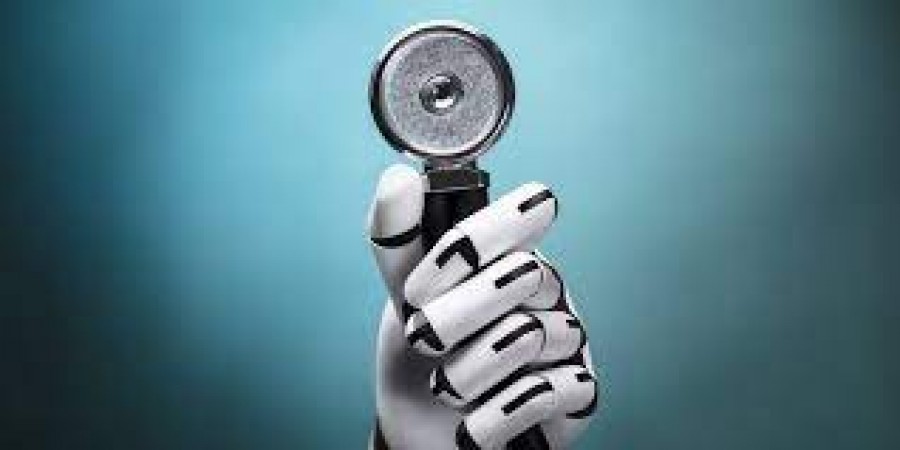
The integration of artificial intelligence (AI) in healthcare has revolutionized the way medical diagnosis and treatment are conducted. With its ability to analyze vast amounts of data quickly and efficiently, AI is transforming the healthcare landscape, providing more accurate diagnoses, personalized treatments, and enhanced patient care. In this article, we explore the various applications of AI in the healthcare industry and how it is reshaping the future of medicine.
Understanding AI in Healthcare
AI refers to the simulation of human intelligence in machines, enabling them to perform tasks that typically require human intelligence. In healthcare, AI systems are designed to analyze complex medical data, recognize patterns, and make informed decisions to assist healthcare professionals in diagnosis and treatment.
AI Applications in Medical Diagnosis
Leveraging Machine Learning for Early Detection
One of the most significant contributions of AI in healthcare is its role in early disease detection. Machine learning algorithms can analyze patient data, such as medical records and diagnostic test results, to identify potential health risks before symptoms even manifest. This proactive approach allows for early intervention, leading to better treatment outcomes.
AI-Enabled Imaging and Radiology
AI has brought about a paradigm shift in medical imaging and radiology. Advanced algorithms can analyze medical images, such as X-rays, MRIs, and CT scans, with exceptional precision. This not only speeds up the diagnostic process but also enhances the accuracy of detecting abnormalities, including tumors and other critical conditions.
Predictive Analysis for Disease Outbreaks
AI is a valuable tool in predicting and managing disease outbreaks. By analyzing various data sources, including social media trends, geographical patterns, and travel data, AI algorithms can forecast the spread of infectious diseases. This information aids healthcare organizations and governments in implementing timely preventive measures.
AI in Treatment and Patient Care
Precision Medicine and Personalized Treatments
AI is propelling the adoption of precision medicine, which tailors medical treatments to individual patients based on their genetic makeup, lifestyle, and environmental factors. This approach ensures targeted therapies, minimizing side effects and maximizing treatment efficacy.
AI-Powered Robotic Surgeries
Robotic surgeries guided by AI have revolutionized the field of surgery. AI-powered surgical robots offer enhanced precision and dexterity, allowing surgeons to perform complex procedures with greater accuracy. These minimally invasive surgeries result in quicker recovery times and reduced risks for patients.
Virtual Health Assistants
Virtual health assistants powered by AI provide patients with round-the-clock support and personalized care. These digital assistants can answer medical queries, schedule appointments, and remind patients to take their medications. They play a crucial role in promoting patient engagement and adherence to treatment plans.
Enhancing Medical Research with AI
Drug Discovery and Development
AI accelerates drug discovery by analyzing vast datasets to identify potential drug candidates. Through AI algorithms, researchers can predict the efficacy and safety of drug compounds, significantly reducing the time and cost of bringing new medicines to market.
Genomic Analysis and Insights
AI-driven genomic analysis allows researchers to study complex genetic data and identify genetic markers associated with diseases. This knowledge contributes to a deeper understanding of diseases and the development of targeted therapies based on an individual's genetic profile.
Overcoming Challenges and Concerns
Data Privacy and Security
While AI offers tremendous benefits, it also raises concerns about patient data privacy and security. Healthcare organizations must implement robust security measures to safeguard sensitive medical information from unauthorized access or breaches.
Ethical Considerations
The ethical implications of AI in healthcare must be carefully addressed. Questions about AI's role in decision-making, patient autonomy, and the potential for bias in algorithms necessitate ethical guidelines to ensure responsible and fair AI use.
Future Prospects and Integration
AI and Internet of Medical Things (IoMT)
The integration of AI with the Internet of Medical Things (IoMT) holds great promise for the future. The IoMT encompasses various medical devices and wearables connected to the internet, allowing real-time data collection. AI analysis of this data can lead to early detection of health issues and personalized healthcare recommendations.
AI's Role in Pandemic Response
The COVID-19 pandemic highlighted the importance of AI in healthcare. AI-driven models and analytics played a crucial role in predicting virus spread, optimizing vaccine distribution, and identifying potential treatments.
AI-Driven Healthcare Accessibility
AI has the potential to improve healthcare access in underserved areas. Telemedicine platforms with AI capabilities can offer remote consultations and diagnostics, bridging the gap between patients and healthcare providers. The integration of AI in healthcare is a game-changer, revolutionizing medical diagnosis, treatment, and research. From early disease detection and personalized treatments to AI-driven surgeries and virtual health assistants, AI technologies are enhancing patient care and outcomes. However, addressing privacy, security, and ethical concerns is essential to ensure responsible AI implementation. As we embrace the future of healthcare, AI will undoubtedly continue to play a pivotal role in transforming medical practices and improving global health.
Healthy Indian Vegetarian Recipes: Exploring the Delights of Nutritious Cuisine